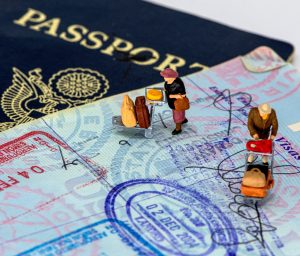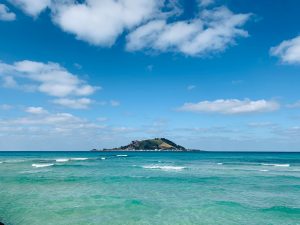Great news for digital nomads! Thailand has introduced the new Destination Thailand Visa (DTV), designed for remote workers and digital nomads. This visa is part of Thailand’s efforts to boost tourism and attract more visitors.
Key Points about the DTV Visa:
- Stay in Thailand for up to 180 days per year, valid for 5 years.
- Extendable once for a maximum of 180 days.
- May be extended for 10,000 baht.
- Minimum financial proof of 500,000 baht.
- Visa fee: 10,000 baht.
- Includes legal dependents (spouse and children under 20).
More details and updates can be found on this Destination Thailand Visa website, which is actively monitoring the situation.
Disclaimer: This information is based on current published details and may change. Check the website for the latest updates.
It is important to note that the DTV visa does NOT allow “any” digital nomad to stay in Thailand for five years. It can be used within a five-year period for 180 days, and extended once for another 180 days, with a 10,000 baht filing fee each time. After being used twice, the DTV visa would expire.











































Finally! A visa that caters to the lifestyle of digital nomads like us. This is a game-changer for those of us who have been juggling visas in Southeast Asia. Thailand’s always been a top destination for remote work for its affordability and vibes.
But isn’t it a bit exclusive? The financial requirement seems a bit steep for younger folks just starting out. Not everyone has 500,000 baht lying around.
True, it’s not the most accessible, but it’s definitely a step in the right direction. Hopefully, this initiates a trend where countries start to recognize the value digital nomads bring and make adjustments accordingly.
It’s actually more accessible than you think. Comparing to what other countries ask for in terms of financial proof, Thailand is offering a bargain!
if you don’t have that much you shouldn’t be a digital nomad. you should have at least 1million baht. if your planing to stay in a country for so long.
Does anyone know if the work permit issue has been clarified? Last I checked, digital nomads technically work in a gray area in most countries.
Still a gray area, but it appears Thailand is moving towards recognizing digital nomadism as legitimate. The key will be in how they enforce work permit laws for us.
I’m worried about the environmental impact. Increased long-term tourism, especially in popular areas, might strain local resources. We’ve seen this happen in Bali.
That’s a valid point. It’s on us, the digital nomad community, to advocate for sustainable tourism and support local economies without causing harm.
Thank you! As a Thai local, I appreciate when foreigners think about the impact they have on our country. Mindful traveling is the way to go.
Isn’t this just going to inflate the cost of living for locals? Expats tend to drive up prices in popular areas, making it hard for locals to afford their own cities.
A double-edged sword, indeed. The government should invest the visa fees into local communities to help mitigate this effect.
It’s already happening in Bangkok and Chiang Mai. Rents are skyrocketing because of the foreign influx. It’s becoming a real issue.
Global phenomena, unfortunately. Governments need to find a balance between attracting talent and protecting local interests.
this could all be solved if foreigners have to buy a condo to get permanent visa. like a 2 million baht condo at least. this would give so much money to Thailand. then rent would not go up.
This is great and all, but I’m here for the Thai cuisine mentions. Can you imagine living in Thailand and having authentic Pad Thai whenever you want? Count me in!
It’s not just about the food! Thailand’s rich culture, friendly people, and beautiful landscapes make it an ideal place for digital nomads. Food is just the cherry on top.
And the fruit! Don’t get me started on the fresh mangoes and durians. Thailand’s food is a major pull factor, for sure.
Anyone else wondering about the logistics of applying for this visa? Sounds like a bureaucratic nightmare waiting to happen.
Probably not any more difficult than other visas. The trick is always in gathering the right documents and meeting the financial requirements.